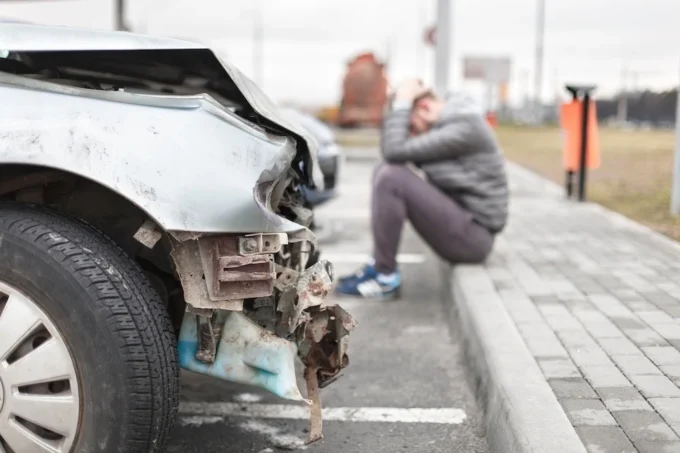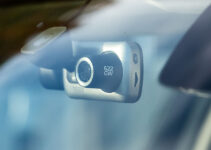There’s something surreal about handing your child the keys to the car for the first few times. They spent lots of time getting ready for their driver’s license. They passed their test. Now, you are supposed to trust them.
For parents, it’s critical to have a few pointed conversations with their children. Doing so could help save their lives and be responsible drivers. Here are some of the most important conservations a parent should have with their teenagers who are starting to drive.
What to Do in an Accident

Source: carwreckdoctor.com
Unpleasant as the thought is, car accidents do happen. If your teen is prepared for the process after an accident, they are less likely to panic. Together, review an information source about accidents from a legal perspective. This site is a good place to start. Afterward, discuss the information and apply it to real life examples that might arise.
Doing so can teach them how to approach liability in an accident. For example, you don’t want them to state anything such as, “I’m sorry, it was my fault.” You also want them to try to get pictures of the incident and witness statements if safe to do so. Discussing accident liability could help them avoid making costly mistakes.
It’s also important to address matters of physical safety after a wreck. Your teen should seek out immediate medical care for themselves and any others injured. Point out how important it is for them to avoid leaving the car if they have physical trauma. You should also tell them not to remove another injured person from a vehicle unless there is an immediate threat. An example of such a threat would be a car fire.
The Dangers of Distracted Driving
The Centers for Disease Control and Prevention state that, in 2019, 3,100 people were killed as a result of distracted driving. Another 242,000 people suffered injuries. Many of these were young adults and teen drivers. Noting this, it’s critical to have a conversation about distracted driving with your children.
New drivers are often at risk. They are overconfident or may be unsure of themselves. They may be more likely to overcorrect when swerving, or they may find themselves unsure of how to react. That means reducing distractions in the car is a must.
Some of the most common distractions are easily available. Ideally, drivers should keep cell phones in the backseat of the car while in motion. Alternatively, only use hands-free calls when it is necessary. Another way parents can drive these points home is by modeling good behavior. Most notably, this includes never texting while driving.
Comprehensive Costs of Owning and Driving a Vehicle

Source: thebalance.com
New drivers may quickly learn the costs of caring for a vehicle. That’s true if they are financially responsible for it. If you are paying the expenses for the vehicle, however, your teen may be unaware of how much it costs to drive.
Costs include the purchase or leasing of the car, but also things like sales tax and insurance. Students also need to consider the costs of property tax, inspections, and repairs.
Talk to your new driver about the value of their vehicle, too. Discuss the cost of replacing a car or truck like the one they have. By understanding this, they may be more likely to take care of their vehicle.
Routine Vehicle Maintenance
It is also important to discuss the need for vehicle maintenance. All vehicles require routine oil changes and tire rotations. Yet, there is more to vehicle maintenance than this.
Have your child come with you to oil changes and routine maintenance appointments. Help them to understand the different components of the car. Discuss the steps they need to take to maintain the car. That includes how frequently things like alignments, oil changes, and tune-ups need to happen.
Also, talk about how to ensure they are getting quality maintenance for their vehicle. How do they know who to trust with their car? What certifications and licenses should the technician have? It may also be wise to talk about how to get a quote for larger repairs. That could help them learn how to manage this process on their own as an adult.
Knowing When Not to Get Behind the Wheel

Source: nerdwallet.com
Talk to your child about when it may not be safe for them to get behind the wheel of a car. The obvious example of this is when they have consumed any drugs or alcohol. Be frank and open about these conversations. Your young teen may not drink now. They may in the future, though.
Also, talk about being tired behind the wheel. This can create similar risks as driving under the influence of alcohol. The same concerns apply to reactions to some prescription medications.
Discuss other times when it may not be safe to drive. That could include times when they are emotionally upset or when they’ve had a rough day. If weather conditions are poor, they may want to avoid driving as well.
Discuss the Privilege of Driving
Have an open conversation about the fact that driving is a privilege and not a right. That is, if they fail to obey the law, they could lose their license at any time. Discuss why that is, such as the danger they are putting others in when they do not follow the rules.
It’s also important to talk to them about their responsibility to keep others safe. Many accidents caused by distracted driving involve walkers and bike riders. While driving can be fun, your young driver is responsible for others on the road with them.
Spend some time focused on driving safety tips. Even if they already have their license, offer some things you do to stay safe. That may include things like creating a routine of checking mirrors, buckling up, or keeping the radio low.







